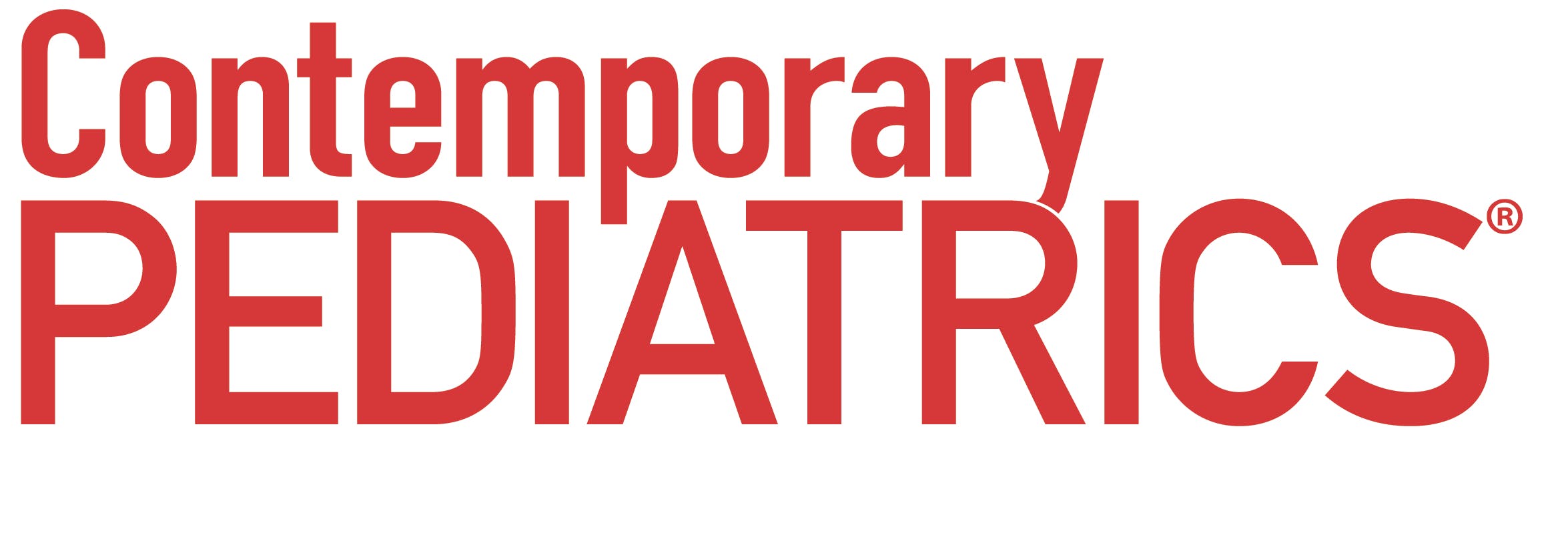Pediatric ADHD: Zeroing in on an Untenable Burden
This article is sponsored by Corium.
Please note author has been compensated for this article.
Good emotional health is priceless. But for the estimated 6 million children with attention deficit hyperactivity disorder (ADHD)1, the weight of this challenging developmental disorder often leaves sustained emotional and social well-being out of reach.
As a psychiatrist who works with pediatric and adolescent patients, I’ve witnessed the tumultuous journey of ADHD firsthand. Uncontrolled ADHD symptoms can exert a debilitating toll on children and their families, creating stressful days and restless nights. Compounding the burden is the difficulty of diagnosing ADHD and the balancing act we, as practitioners, encounter in finding the treatment regimen that best matches our patients’ needs.
As healthcare providers (HCPs), now is the time for us to take action, by taking a closer look at the burden of ADHD and work toward innovative, long-term solutions that will help children and their families thrive.
Compelling insights from the frontlines of pediatric practice shows us why we are long overdue for a reset in the diagnosis and treatment of ADHD.
A Front Row Seat of the Pediatric ADHD Burden
A recent survey of 210 HCPs who treat pediatric patients living with ADHD highlighted the daily challenges those patients face and the difficulties we encounter in properly controlling and treating their symptoms.
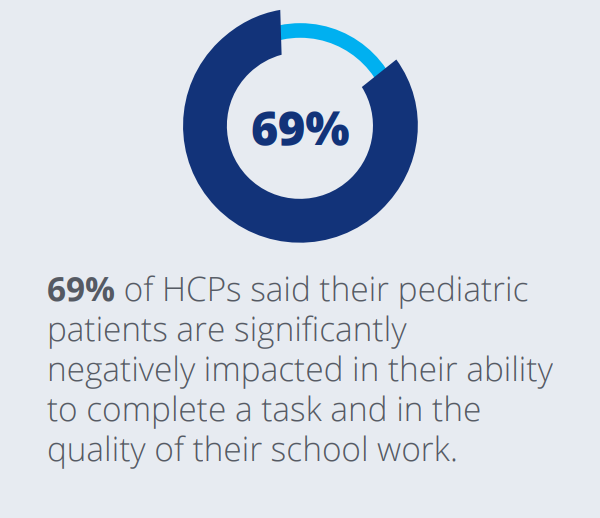
Every pediatric provider who participated in the survey confirmed that ADHD negatively impacted multiple aspects of their patient’s lives, with 100% reporting that ADHD impacts their patients’ self-esteem.2 School also seems to be a challenge, with 69% of HCPs reporting that ADHD in their pediatric patients significantly impacted their ability to complete a task and produce quality schoolwork.2 Practitioners also reported that the periods throughout the day their ADHD pediatric patients found most challenging were mornings when they were preparing for school, the school day itself, and after school hours when they were required to complete homework assignments.2 More than half of HCPs strongly agreed that the back to school season is the most difficult time of year for these patients.2
The Whole Family Challenge of ADHD
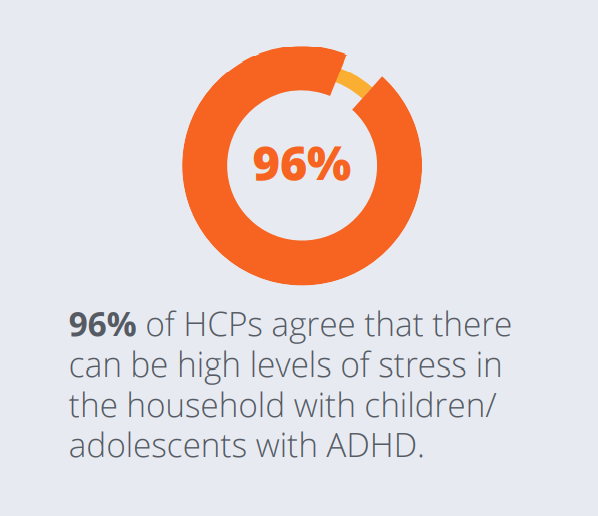
The challenges that children with ADHD face impact the entire family. According to the survey, 96% of practitioners reported that there can be high levels of stress in households of children with ADHD and 92% indicated that constructive discipline can be difficult.2 Some of the most common reasons why families seek care is because their children are unable to stay focused to finish a task, they are easily distracted, and they don’t follow instructions.2 Of the pediatric psychiatrists surveyed, 80% observed their patients have emotional outbursts and 73% possess a low tolerance for frustration.2
Efficacy vs Side-Effects: The Thorn of Prescribing Practices
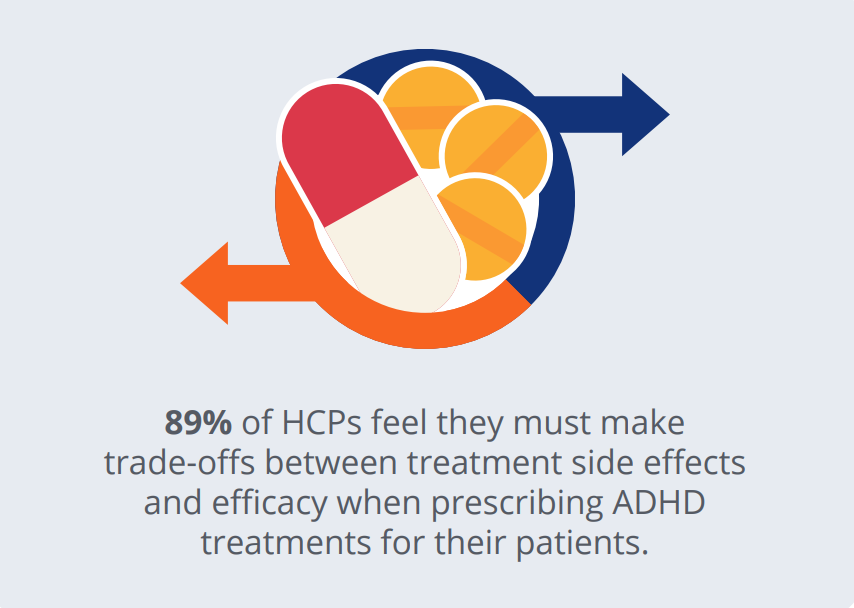
While many treatment options currently exist for patients with ADHD, it is still difficult for practitioners to diagnose and treat them. Nearly one-third of the HCPs surveyed find it challenging to diagnose ADHD in children and adolescents.2 HCPs reported they often feel like they have to make trade-offs, with 89% of HCPs who treat children reporting the difficult balancing act of weighing a treatment’s side effects with its efficacy when prescribing ADHD treatments for their patients.2
Embracing Innovation in ADHD Treatment
While ADHD remains a challenging condition to diagnose and control, innovative treatment options are available. As practitioners, it is our responsibility to stay apprised of the latest research and breakthroughs in treatment and to continue to leave no stone unturned in helping children and their families realize the better emotional health they deserve.
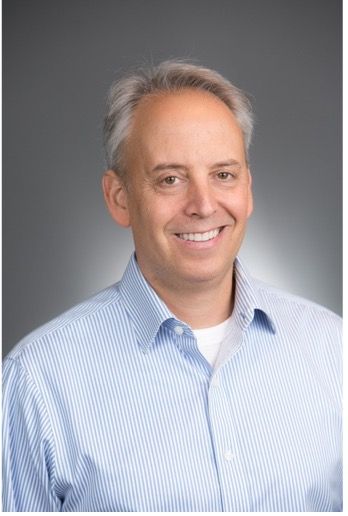
Dr. Jackson is one of the founders and owners of the Neurobehavioral Medicine Group, an outpatient psychiatric treatment center in Bloomfield Hills, Michigan. He also practices in Boca Raton, Florida and is a consultant to the State Psychiatric Hospitals in New Jersey. He served for 22 years as a Senior Psychiatrist for the Departments of Community Health and Corrections in Michigan. Dr. Jackson obtained his medical degree from Wayne State University School of Medicine. He is board certified in Adult, Adolescent and Child Psychiatry, with added qualifications in Forensic Psychiatry. He is a Clinical Associate Professor of Psychiatry at Wayne State University and Oakland Beaumont University School of Medicine and an Assistant Clinical Professor of Psychiatry at the University Of Michigan School of Medicine. Dr. Jackson is a Principal Investigator in numerous clinical trials in ADHD and other psychiatric disorders in Adults, Adolescents and Children.
About the Survey
The objective of the survey referenced was to better understand healthcare provider’s perspectives on the diagnosis and treatment of ADHD, the impact of ADHD on patients’ daily lives, and the shortcomings of current treatment. More information about the survey can be found here.
This survey was conducted in April and May 2023 independently by Outcomes Insights with support by Corium, LLC. The survey participants included a total of 210 HCPs who treat children and adolescents with ADHD (108 Pediatricians, 51 Pediatric Psychiatrists, 51 NP/PAs), and a total of 196 HCPs who treat adults with ADHD (105 Primary Care (FP/GP/IM), 55 Psychiatrists, and 36 NP/PAs).
References:
1. Melissa L. Danielson, Rebecca H. Bitsko, Reem M. Ghandour, Joseph R. Holbrook, Michael D. Kogan & Stephen J. Blumberg. (Jan. 24, 2018). Prevalence of Parent-Reported ADHD Diagnosis and Associated Treatment Among U.S. Children and Adolescents, 2016. Journal of Clinical Child & Adolescent Psychology, 47:2, 199-212, DOI: 10.1080/15374416.2017.1417860.
2. Data on File. Corium LLC. 2023
© 2023 Corium, LLC. All Rights Reserved.
AZS-0715 (v1.0) 09/23









